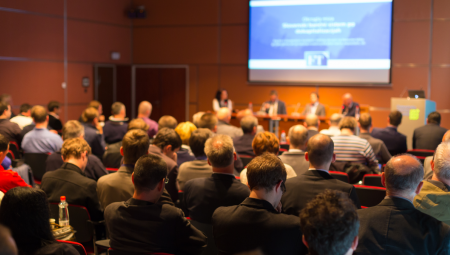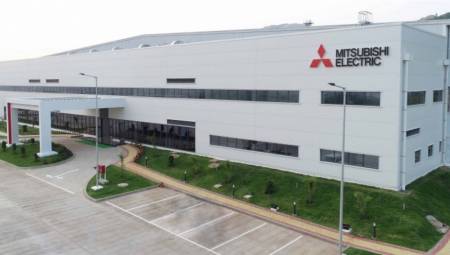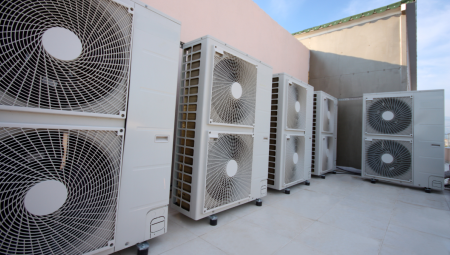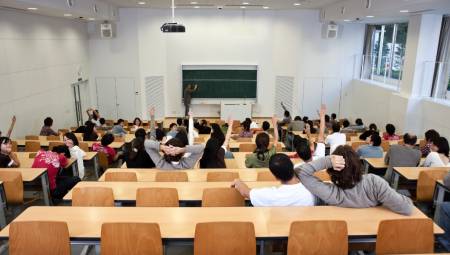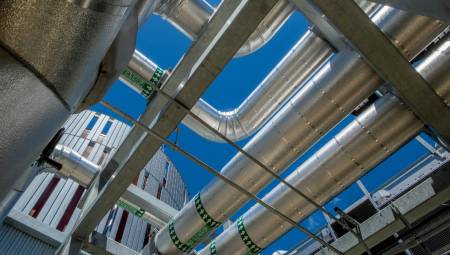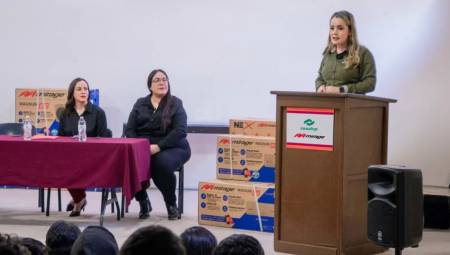A panoramic look at automation in Latin America reveals that it is an industry that has gradually gained strength, but has been affected by the recent economic crisis. However, it can continue to grow if long-term investment is considered.
Building automation has been growing significantly in our region, and more and more constructions obey centralized controls of various of their daily functions. What until a few years ago was a novelty: an intelligent building, is part of the landscape in large Latin American cities.
By: Héctor Gómez Pérez
 To give just one example: at the end of 2008, the imposing headquarters of the Bancolombia Group was inaugurated in Medellín, Colombia, one of the most modern constructions in the region and the largest corporate building built in this South American country: 135,379 m2.
This structure has a mechanism for the protection of gas emission, rainwater reuse system, has air conditioning that saves up to 50% of energy by more efficient handling of the cold air inlet and the return of hot air from the environment, elevators with neural intelligence and enough natural light that contributes to the rationalization of artificial light between 25 and 50% on sunny days.
Like this there are many buildings throughout the region, but there may be many more if economic benefits are established for those who build with this type of parameters and if the final customers contemplate these investments in the long term and not in the initial expense.
ACR LATINOAMÉRICA wanted through four perspectives of the industry, located in different geographical areas of the region, including one from North America, to know what is the situation of automation these days, what its main potentialities and what are its challenges in times when the economy It is traversing uncertain terrain.
Ricardo Aguiar, general manager of Intelcon, Costa Rica; Efrén Márquez, leader of technical support of systems for buildings of Honeywell Latin America, with his opinion from Mexico; Carlos Alberto García, controls manager of Johnson Controls, from Colombia, and finally Patrick Winkelman, vice president of sales for the Americas of Distech Controls, from the United States.
This is how we are
In general terms, the experts agreed that this industry has grown in a good way in the region for 10 years, as it has become aware of the benefits in energy savings and optimization in resources by having centralized monitoring and control systems. Something remarkable was said by Efrén Márquez when he pointed out that "particularly in Mexico, due to its greater proximity to the United States and trade agreements made together with Canada, the growth of automation is following the level of evolution developed by these trading partners. Keep in mind that there will always be a gap due to the lack of research in our countries and that our evolution is based more on using the technology developed in European countries and in the United States than on developing our own."
Currently, technologies for building automation are aimed at energy management and the reduction of installation times. In addition to the need for different systems, applications and manufacturers to have optimal interoperability, all this based on web connectivity and the possibility of having mobile devices for the administration and monitoring of automation systems.
To give just one example: at the end of 2008, the imposing headquarters of the Bancolombia Group was inaugurated in Medellín, Colombia, one of the most modern constructions in the region and the largest corporate building built in this South American country: 135,379 m2.
This structure has a mechanism for the protection of gas emission, rainwater reuse system, has air conditioning that saves up to 50% of energy by more efficient handling of the cold air inlet and the return of hot air from the environment, elevators with neural intelligence and enough natural light that contributes to the rationalization of artificial light between 25 and 50% on sunny days.
Like this there are many buildings throughout the region, but there may be many more if economic benefits are established for those who build with this type of parameters and if the final customers contemplate these investments in the long term and not in the initial expense.
ACR LATINOAMÉRICA wanted through four perspectives of the industry, located in different geographical areas of the region, including one from North America, to know what is the situation of automation these days, what its main potentialities and what are its challenges in times when the economy It is traversing uncertain terrain.
Ricardo Aguiar, general manager of Intelcon, Costa Rica; Efrén Márquez, leader of technical support of systems for buildings of Honeywell Latin America, with his opinion from Mexico; Carlos Alberto García, controls manager of Johnson Controls, from Colombia, and finally Patrick Winkelman, vice president of sales for the Americas of Distech Controls, from the United States.
This is how we are
In general terms, the experts agreed that this industry has grown in a good way in the region for 10 years, as it has become aware of the benefits in energy savings and optimization in resources by having centralized monitoring and control systems. Something remarkable was said by Efrén Márquez when he pointed out that "particularly in Mexico, due to its greater proximity to the United States and trade agreements made together with Canada, the growth of automation is following the level of evolution developed by these trading partners. Keep in mind that there will always be a gap due to the lack of research in our countries and that our evolution is based more on using the technology developed in European countries and in the United States than on developing our own."
Currently, technologies for building automation are aimed at energy management and the reduction of installation times. In addition to the need for different systems, applications and manufacturers to have optimal interoperability, all this based on web connectivity and the possibility of having mobile devices for the administration and monitoring of automation systems.
About the largest consumers of automation solutions by country this is what was found:
Ricardo Aguiar, Panama: "The commercial sector is currently the largest demand for automation solutions, since by its nature it requires air conditioning its offices with air conditioning and therefore look for a centralized system where you can operate, in a graphic and simple way, the different systems such as air conditioning, lighting control, etc."
Efrén Márquez, Mexico: "The pharmaceutical and food industry, large hotel resorts, buildings and housing complexes of the high end type".
Patrick Winkelman, United States: "The sector muti-site to connect these buildings in a cost-efficient way."
Carlos Alberto García, Colombia: "Automation in Colombia is in the following markets. The first is the commercial sector of offices, warehouses, etc. Another important sector is the government sector, perhaps it is the one with the highest investment. It is followed by the sector of stores, education from the private sector, health sector and industry; finally we have the hotelier that has grown a lot in the last 2 years. In some cases, green building technology concepts that seek to improve their energy efficiency are being applied."
In short, there is agreement in opinions regarding the main reason for different industries to turn their gaze towards building automation: energy saving. Although we must not ignore the importance of control and monitoring from a single platform that integrates air conditioning, lighting control and access control, in addition to the fact that it is a way to generate status and solidity.
A world in crisis
Since the end of the previous year, the winds of the global economic crisis have been felt in various industries, including construction, an industry that in turn is directly related to the one that occupies the attention of this article. In that sense, García referred to saying that "many projects are currently being postponed; the pace of investment or caution in doing so have reduced projects, especially those that have not reached their break-even point."
While the crisis has halted construction, one of the main indications that an economy is in good health, and some automation projects in the region have been halted, Aguiar offered a glimpse into the decision to invest in this area from a different perspective and that goes back many years. has had the misconception that it is not necessary to make an investment in an automation system for the initial cost and we rarely analyze the future benefits that this entails. It is necessary to do a great job to mentalize the client about the need to automate their industry or commerce, "said this Central American representative.
For his part, Winkelman considers the situation of the industry a little negative from the point of view of the crisis, but highlights other scenarios in which the panorama tends to become clear: "the crisis has delayed some projects due to the availability of money and the uncertain future of the economy. But it has also created focus opportunities to reduce costs in building operations due to the rising cost of energy, CO2 emission penalty taxes, and resource reduction work to maintain and operate buildings."
Márquez goes a little further by pointing out regarding the current situation that "any challenge, if we see it as something that must be faced if or if, is another opportunity to grow and improve. We as generators of state-of-the-art technology and manufacturers of automation equipment and systems believe that this is the case" and adds that if there are no new constructions to offer automation solutions, we must attack the existing market, that is, focus on the issue of energy saving and offer state-of-the-art technology in buildings with several years of existence to improve its operability.
Aguiar also highlighted the benefits that in these moments of austerity can bring the after-sales service from which resources can be obtained for maintenance or for projects to improve or expand the existing system.
Challenges and perspectives In the past, the main drawback of the automation industry in Latin America was the delay in the diffusion of technology and the difficulty in accessing it; these days the challenges are different and are aimed at having a customer more informed of the benefits of automation, which lead him to adopt the purchase decision visualizing beyond the initial investment. Winkelman said governments must have important leadership in the matter to incentivize owners of existing buildings to improve the efficiency of these constructions and make them more environmentally friendly. "The main challenge is to get end customers to demand valuable solutions from their builders that generate real benefits in building management. Unfortunately, at present the priority over the price is maintained in many cases before the solution. In Colombia the price is decisive in the purchase decision as is all latin America, we have not yet understood the real benefits of making a good initial investment in technology.", said García. Finally, and very much in line with what García said, there is Ricardo Aguiar's opinion on the issue of the information available to end customers on automation: "I think that still in underdeveloped countries we are in 'diapers', because we have not become aware of the benefits of having an automation system, and by mistake we only think about the initial investment. This is something that will gradually have to be changed." With this overview of the industry, clouds can be seen on the horizon, but there is a very big invitation to improve the programs for the end user to make automation grow in our countries. The important thing is to make the best use of these moments of conjuncture.



